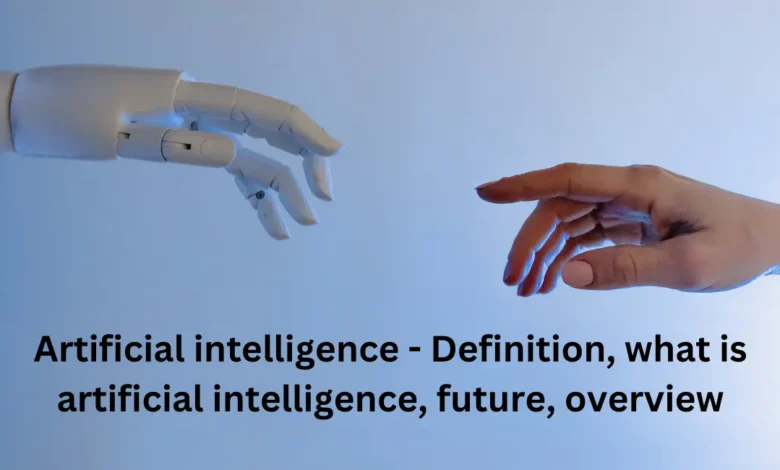Artificial intelligence – Definition, what is artificial intelligence, future, overview

Artificial intelligence (AI) is the capacity of a digital computer or robot operated by a computer to carry out actions frequently performed by intelligent beings. The phrase is widely used in reference to the effort to create artificial intelligence (AI) systems that possess human-like cognitive abilities like the capacity for reasoning, meaning-finding, generalisation, and experience-based learning.
It has been proven that computers can be programmed to perform extremely complicated tasks—like, for example, finding proofs for mathematical theorems or playing chess—with remarkable proficiency ever since the development of the digital computer in the 1940s. Nevertheless, despite ongoing improvements in computer processing speed and memory space, there are currently no programmes that can match human adaptability across a larger range of activities or those needing a substantial amount of background knowledge.
On the other hand, some programmes have reached the performance levels of human experts and professionals in carrying out some specific tasks, so artificial intelligence in this constrained sense is present in a variety of applications, including voice or handwriting recognition, computer search engines, and medical diagnosis.
What is Artificial Intelligence?
The study of creating intelligent devices or computer systems that can mimic human intelligence is known as artificial intelligence. Artificial intelligence allows for the creation of machines that behave and act much like people. Some uses of artificial intelligence include speech recognition, customer service, recommendation engines, and natural language processing (NLP).
Since its start, artificial intelligence (AI) research has examined and disproved a wide range of approaches, including brain mimicry, modelling human problem-solving, formal logic, vast knowledge bases, and animal behaviour imitation. In the first decades of the twenty-first century, machine learning with a strong mathematical-statistical component dominated the field. The numerous subfields of AI study are focused on particular objectives and the use of particular methods. Conventional AI research targets include the development of reasoning, knowledge representation, planning, learning, natural language processing, sensing, and the ability to move and manipulate objects. General intelligence is one of the field’s long-term objectives (the capacity to solve any problem).
AI researchers have adapted and integrated a variety of problem-solving strategies to tackle these problems, including search and mathematical optimization, formal logic, artificial neural networks, statistical, probabilistic, and economic methods. rice field. AI also uses different fields such as psychology, linguistics, and philosophy.

Unboxing the Future: Tech Reviews & News


